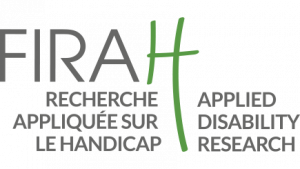APPEL À PROJETS GÉNÉRAL┋RECHERCHE APPLIQUÉE SUR LE HANDICAP

L'appel à projets Général complète les autres appels 2025 de la FIRAH qui eux sont thématiques.
Cette année, l’appel à projets général met en avant les sujets prioritaires suivants :
- Le handicap face aux crises ;
- Développer des territoires inclusifs.
Toutefois, veuillez noter que cet appel à projets étant un appel à projets blanc, ces sujets ne sont pas obligatoires et la FIRAH est aussi intéressée à recevoir des propositions de recherche appliquée en dehors de ceux-ci.
Le porteur de projet principal peut être issus de tous les pays du monde.
Pour les projets ayant un porteur de projet non français, un partenariat avec a minima une organisation française doit être mis en place, de nature à développer la coopération internationale. Cette organisation sera impliquée dans le comité de pilotage et devra s’assurer des conditions permettant des activités sur le territoire français. Ce sera suivant les cas : une équipe de recherche ou un organisme travaillant dans le domaine du handicap.
Les recherches appliquées devront déboucher sur des résultats avec des retombées pratiques, utiles et utilisables par les personnes handicapées, leurs familles, les aidants, les professionnels, etc. Elles proposeront aussi des livrables finaux permettant de transférer les connaissances produites vers ces acteurs de terrain. Pour cela, les recherches devront être le fruit d’une collaboration réelle, tout au long du processus de recherche, entre les personnes handicapées, leurs familles, les accompagnants, les professionnels et les chercheurs.
Documents de l'appel à projets
- La présentation de l’appel à projets (pdf) contenant toutes les informations concernant les critères de sélection ainsi que les démarches permettant de postuler.
- Le formulaire (word) à remplir pour la lettre d'intention.
Calendrier de l'appel à projets
Mise en ligne de l’appel à projets : Mardi 07 janvier 2025.
Clôture de la réception des lettres d’intention : Lundi 24 mars 2025 inclus, à minuit (heure de Paris).
Annonce des lettres d’intention présélectionnées aux porteurs de projets : Lundi 30 juin 2025.
Clôture de la réception des dossiers complets : Lundi 06 octobre 2025 inclus à minuit (heure de Paris).
Annonce des dossiers complets sélectionnés aux porteurs de projets : Vendredi 19 décembre 2025.
